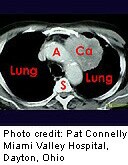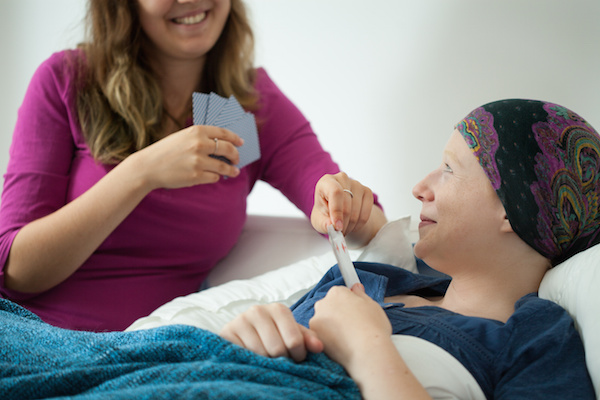
WEDNESDAY, Jan. 29, 2014 (HealthDay News) — Smokers and other people at high risk for lung cancer could make matters worse if they take antioxidant supplements, a new study of rodents suggests.
Antioxidants appear to accelerate cancer progression by short-circuiting one of the body’s key immune responses to malignant cells, researchers from Sweden report.
Normal doses of vitamin E and smaller doses of the antioxidant supplement acetylcysteine increased the growth of tumors in mice with early lung cancer, the researchers reported in the Jan. 29 issue of Science Translational Medicine.
“We found that antioxidants caused a threefold increase in the number of tumors, and caused tumors to become more aggressive,” senior author Dr. Martin Bergo said during a Tuesday news conference. “Antioxidants caused the mice to die twice as fast, and the effect was dose-dependent. If we gave a small dose, tumors grew a little. If we gave a high dose, tumors grew a lot.”
Bergo, co-director of the Sahlgrenska Cancer Center at the University of Gothenburg, said the findings are particularly concerning because acetylcysteine is used to improve breathing in patients with chronic obstructive pulmonary disease, or COPD. Most people who have COPD are current or former smokers.
Antioxidants are supposed to protect the body from disease by preventing cell damage caused by molecules called free radicals. “These radicals can damage almost anything inside the cell, including DNA, and DNA damage can lead to cancer,” Bergo said.
But this protection backfires in people who already have cancerous or precancerous cells, the researchers said.
When the body detects cellular DNA damage that can lead to cancer, it releases a key tumor-suppressing protein called p53.
In laboratory tests with mouse and human cancer cells, researchers found that antioxidants suppress the release of p53 by halting DNA damage done to cancer cells by free radicals.
“By reducing the DNA damage, the antioxidant actually helps the cancer cells escape detection,” co-author Per Lindahl, a professor of biochemistry and cell biology at the University of Gothenburg, said in the news conference.
The findings suggest that people carrying small undiagnosed tumors in their lungs should avoid taking extra antioxidants, the study concludes.
“If you have lung cancer, or if you have an increased risk of developing lung cancer, then taking extra antioxidants may be harmful and it could speed up the growth of a tumor,” Bergo said.
While studies involving animals can be useful, they may fail to produce similar results in humans.
However, this isn’t the first study to indicate that antioxidants are bad for cancer patients, said Peter Campbell, director of the Tumor Repository at the American Cancer Society.
Human trials conducted in the 1980s and 1990s found that the antioxidants beta-carotene, vitamin A and vitamin E substantially increased the incidence of lung cancer in smokers, he said.
“This study doesn’t stick out like a sore thumb,” Campbell said. “We’ve known for some time that some of these agents tend to backfire. It’s nice to have laboratory evidence to corroborate what we’ve seen in human populations.”
The human body creates its own antioxidants, and is built to use additional antioxidants gained from the food a person eats, Campbell said. By taking antioxidant supplements, people could be defeating the body’s ability to fight cancer and disease.
“There is a food supplement industry that has done a really good job marketing itself, suggesting that if we take these molecules normally found in food we will have better health and, well, a little is good so a whole lot would be better,” Campbell said. “There are very intricate, complicated pathways that are supposed to sense and signal and destroy these precancerous cells. When our body doesn’t turn that system on, these cancerous cells can proliferate.”
However, the Swedish researchers stopped short of saying that no one should take antioxidants.
“If I had a patient with lung cancer, I would probably recommend they do not take extra antioxidants,” Bergo said. “Would I make that recommendation with healthy people? Absolutely not.”
More information
For more about antioxidants and cancer, visit the U.S. National Cancer Institute.
Copyright © 2026 HealthDay. All rights reserved.

